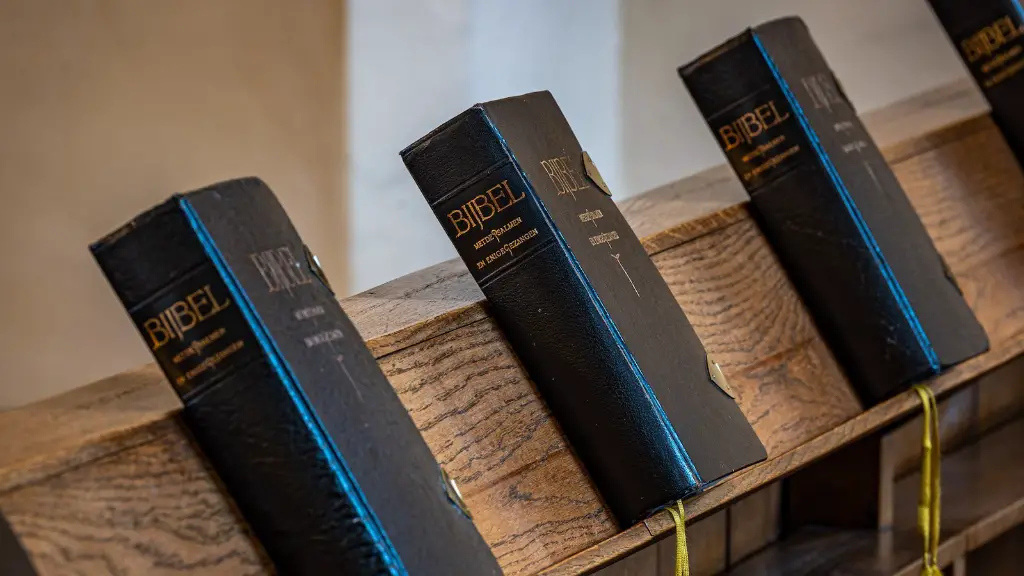Beginnings
Philip is a figure mentioned in the Bible multiple times between the Old and New Testaments. He is a protagonist of important stories in the Gospels, such as Philip’s conversations with the Ethiopian Eunuch from Acts, and his introduction of Nathanael to Jesus in John.From his birth to his death, Philip had an active life full of spiritual revelations and revelations that yielded significant fruits.
Known as “Saint Philip” in the Roman Catholic Church, he is said to have been one of Jesus’ original twelve disciples. He was an Evangelizer whose mission was to spread Jesus’ word and teachings, which he attempted to do with great zeal. Not much is known about Philip’s early life before he met Jesus, other than that he was originally from Bethsaida, a Galilean town near the Sea of Galilee.
The Story of Philip the Disciple
The details of Phillip’s life before he became a follower of Jesus are unclear. According to the Gospel of John, Philip was one of the first disciples encountered by Jesus, and was among the first to recognize and follow him. Jesus’ miraculous feeding of the five thousand is said to have taken place at Bethsaida, where Philip was from. Philip was also present for Jesus’ entry into Jerusalem, and for the Last Supper.
Throughout the Gospel of John, Philip is an extremely vocal advocate for Jesus, frequently attempting to explain Jesus’ teachings more clearly to his fellow disciples. For example, when Jesus said he was the Son of God, Philip immediately responded, “show us the Father” (John 14:8). As his journey with Jesus continued, Phillip’s faith grew, eventually leading him to be one of the first apostles to spread Jesus’ message and teachings to the people of the ancient world.
The Conversion of the Ethiopian Eunuch
Philip is best known for his conversion of the Ethiopian Eunuch detailed in the Acts of the Apostles. In the tale, an unnamed Ethiopian Eunuch has gone to Jerusalem to worship the One True God, when he meets Philip. Philip approaches the Eunuch, who is travelling in a chariot, and begins to explain the Gospel to him.
The Eunuch, taken with Philip’s teachings, asks to be baptized. Philip agrees, and leads the Eunuch to a nearby river. Once there, the Eunuch jumps out of his chariot and is baptized in the name of Jesus Christ. Following the Eunuch’s conversion, Philip is taken immediately to a different place by the Holy Spirit. Philip’s mission to spread the gospel was so successful that it caused the Ethiopian Eunuch’s conversion and the subsequent rapid expansion of the early Church.
The Introduction of Nathanael
Another noteworthy moment in Philip’s relationship with Jesus and his fellow apostles is his introduction of Nathanael to Jesus, as recorded in the Gospel of John. Philip asks Nathanael, who is deeply skeptical of Jesus, “can anything good come out of Nazareth?” (John 1:46). Philip patiently answers Nathanael’s questions and eventually introduces him to Jesus, who refers to Nathanael as a “true Israelite.”
Philip’s Activities Post-Resurrection
Although there is very limited information in the Bible about Philip’s activities post-resurrection, there are a few mentions of him in the New Testament. In the Acts of the Apostles, Philip goes to East out to Samaria to preach. There, he meets Simon the sorcerer, an encounter in which it is said that Philip’s power and faith are put to the test.
Moreover, Philip is said to have ministered in several locations including Azotus, Caesarea and the remaining cities of the Decapolis. He is also associated with Hierapolis, where he lived with his four virgin daughters.
The Death
Philip’s death is not specifically mentioned in the Bible, but according to Christian tradition, he met a martyr’s death in Hierapolis after living there for many years. The martyrology by Romanus the Melodist reports that stoned to death but this is disputed by some modern scholars. Another tradition holds that he was crucified upside down in 80 A.D.
Legacy in Art and Literature
Philip has been a topic of interest in art and literature for centuries. He has been depicted in works by painters such as Caravaggio, Rembrandt, and Reynaldo Hiltonas. Additionally, the Ethiopian eunuch’s act of conversion has been turned into multiple films and plays such as the play “Philip: Disciple of the Lord” by Jaromír Bryan.
Furthermore, Philip’s mission has contributed to the growth of Christianity, through the spread of the gospel that made the conversion of the Eunuch possible. This has had a profound effect on religious philosophy and theology. Over time, the conversion of the Eunuch has come to symbolize the power of the gospel to convert even the most unlikely of people.
Influence on the Church
The role of Philip’s mission in helping the Ethiopian eunuch convert has been significant for the Church. It has become an example for Christian evangelists, who use this story to demonstrate the power of the gospel and its ability to reach and affect anyone, from any background.
This event was particularly significant for the missions of outreach and evangelization within the early church, as it showed that the gospel could be shared with outsiders, and even those with different cultures and beliefs. This was highly revolutionary for its time, as it expanded the Church’s reach to far beyond its traditional area of influence.
The Significance of Philip’s Ministry
Overall, Philip’s ministry was an important part of the early days of the Church. His mission to preach the gospel has helped share the power and the love of Jesus to many who were previously uninformed. Moreover, Philip’s missionary activity has been a source of inspiration for many forms of Christianity, and has had a long lasting influence on modern evangelism.
Philip’s Impact on Christian Philosophy and Theology
Philip’s ministry has been an influential factor in Christian philosophy and theology. His mission to expand Jesus’ teachings to those beyond the borders of Jewish culture has been a source of inspiration to many modern theologians and philosophers. Furthermore, his introduction of Nathanael to Jesus has been a source of comfort to those who are skeptical of Jesus’ teachings, as it demonstrates that faith is more than just jumping to a pre-existing conclusion.
Philip’s ministry also exemplifies the importance of evangelism. His success in converting the eunuch was largely attributed to his initiative, hard work and faith, demonstrating that mission and evangelism require more than just intellectual understanding of the gospel. Philip’s example is an inspiration to all of us to go out into the world and share the love of Jesus boldly and effectively.


